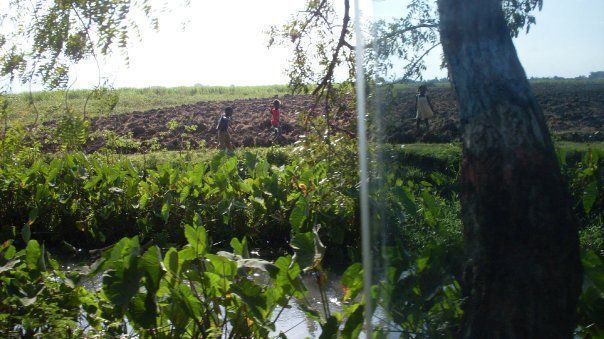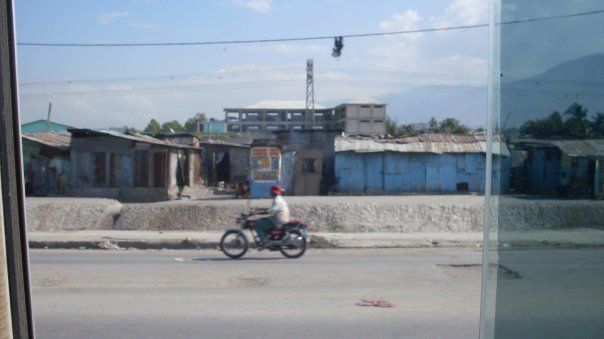In but a few hours, I had managed culture shock of the highest degree: I had traveled from the wintry Milwaukee airport, full of businessmen typing on laptops, college students waiting for Starbucks, and families wheeling giant suitcases, to the blistering hot, ramshackle airport in Port-Au-Prince, Haiti. Once I stepped out of the airplane, I knew that my life would be forever changed by what I saw. Everything was vivid, like a crystal clear movie. Every color and sound and smell was richer, somehow, and the sun shone brighter and hotter than I had ever felt it in my life.
Semi Finalist 2011 Teen Travel Writing Scholarship
Leaving the airport in a large bus with my mission group, I came to an important conclusion: Haiti was a land of contrasts. The land was beautiful, and the people were kind and helpful, smiling and calling out “Bonswa”. However, life there was unbelievably harsh. In Port-Au-Prince, people were everywhere, with tattered clothes, trying desperately to solicit money from our group as we rode in our bus. A boy my age came right to my window.
“Money?” he asked, “Un dolar?”.
“No, no money,” I answered, trying to ignore him. It was the truth, I had come with no cash.
He looked right at me and begged, “Souple, souple?” The bus sped up and he was left behind, but I could still see his face in my mind, with his huge, black-brown eyes.
In the city, we were either ignored, cursed, or begged at, but things changed once we reached the villages. Little kids chased our bus, laughing and yelling “Good Morning!” even though it was afternoon. Even grown men looked up and smiled as they lifted one hand up in a wave. We passed an old man leading two cows, and then a group of half-clothed children playing in a field of sugarcane. I was enthralled.
We finally reached New Missions, our mission compound, and unpacked. Then we put our swimming suits on, and ran straight for the ocean. The sun was setting and I was marveling at how warm the ocean water was, when two Haitian boys jumped into the water and swam out towards me. They swam around in the water laughing, then one did a handstand beneath the water. The other tried to copy him, and his handstand was far superior. Then I, a gymnast, took a deep breath and dove into the salty water, and held a nearly perfect handstand, complete with a few pirouettes. When i came up for air the boys smiled at me, then dove under the water and tried to pirouette their handstands too.
“Tre bien!” I exclaimed for them. They beamed up at me. For a moment, we were equals, just three kids playing in the ocean. Then one of them saw I had taken my flip flops off, and asked me, “Shoes, shoes?”.
“No, these are mine,” I told him, even though I ached to give him to them. New Missions had a strict policy towards handouts: Never encourage children begging.
That night, I fell asleep contemplating Haiti. The rich, beautiful surroundings were marred by the wretched financial state of its people.
Sometimes when I am driving alone early in the morning, the sun shines on the corn fields here in Wisconsin almost the same as it had on the sugarcane fields in Haiti, and I can imagine that I am back there again. However, this beautiful scene fills me with melancholy, for in my mind’s eye rises each man, woman, and child who had begged me, the wealthy American, for the barest of necessities.
Dear Reader: This page may contain affiliate links which may earn a commission if you click through and make a purchase. Our independent journalism is not influenced by any advertiser or commercial initiative unless it is clearly marked as sponsored content. As travel products change, please be sure to reconfirm all details and stay up to date with current events to ensure a safe and successful trip.

